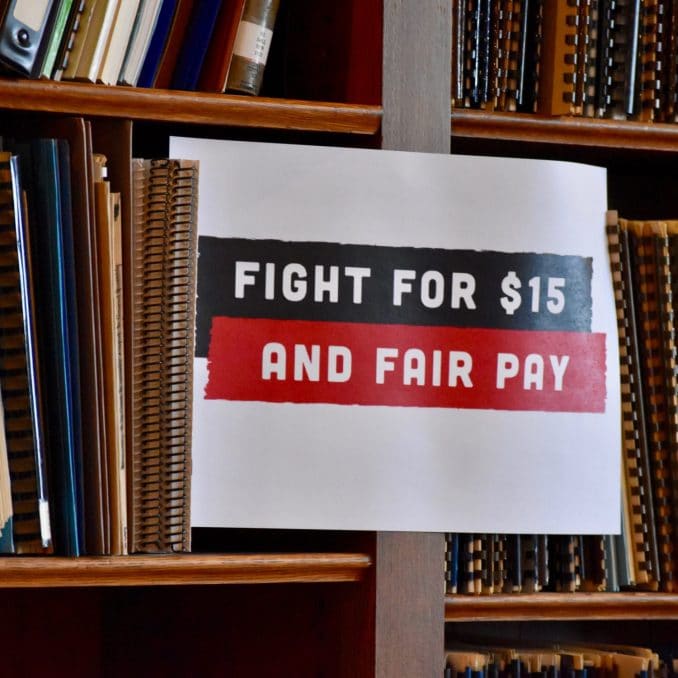Business interests mislead on the minimum wage
As part of her budget proposal for the coming year, Governor Gina Raimondo is seeking an increase in the minimum wage from $10.50 to $11.10. This increase, the governor said in her State of the State address, will “put us on a pathway to a $15 minimum wage.” Evidence suggests that the governor is taking the right approach: incremental increases
February 12, 2019, 10:09 am
By Andy Boardman
As part of her budget proposal for the coming year, Governor Gina Raimondo is seeking an increase in the minimum wage from $10.50 to $11.10. This increase, the governor said in her State of the State address, will “put us on a pathway to a $15 minimum wage.” Evidence suggests that the governor is taking the right approach: incremental increases to the minimum wage are a proven way to enhance the prospects of low-wage workers and their families.
Business interests reacted negatively to Governor Raimondo’s announcement, warning of layoffs and other harmful effects for low-wage workers. Many such predictions were made last week in a Senate Finance Committee hearing on raising the minimum wage. In a recent op-ed for the Providence Journal, “Making it harder to do business in R.I.,” the state director of the National Federation of Independent Business Rhode Island chapter outlines the case made in the hearing. Lawmakers and the public should be skeptical of his claims for a number of reasons.
As evidence that a higher minimum wage would unavoidably harm low-wage workers at small businesses, the op-ed’s author cites one study finding that Seattle’s recent minimum wage increase harmed some workers. He omits, however, a more nuanced study conducted by the same researchers which finds no negative effect on earnings caused by the minimum wage increase. Additionally, he omits another study by economists at U.C. Berkeley finding that Seattle’s minimum wage increase raised workers’ earnings and had no negative impact on employment in the fast food industry.
Moreover, the author declines to address a growing body of research finding that the minimum wage improves both employment and earnings by counteracting the ability of firms to use their market power to push employment and wages below their equilibrium amounts. This research also finds that the minimum wage reduces employee turnover, allowing employers to save on the cost of recruiting and training workers. No matter how we approach the matter, it’s inconsistent with the preponderance of evidence to assert that raising the minimum wage will necessarily harm workers.
Finally, the op-ed author cites a CNBC report ranking Rhode Island’s economic climate 45th in the nation as evidence that our state cannot afford to raise its minimum wage. As with any ranking of this sort, it is important to consider the methodology; in doing so, it is clear that CNBC is not focused on assessing the prospects of low-wage residents in each state. For instance, labor union membership reflects poorly in the ranking in spite of evidence that unionization combats wage stagnation and helps close racial wage gaps. The cost of wages, likewise, reflects poorly in the ranking despite the fact that an increase in the cost of wages equates to an increase in workers’ earnings.
Lawmakers should rely on evidence, not the specious rhetoric of business interests, when considering issues. By incrementally raising the minimum wage, Governor Raimondo is adopting a proven approach to ensure low-wage working people and their families can keep up as our state’s economy advances.






